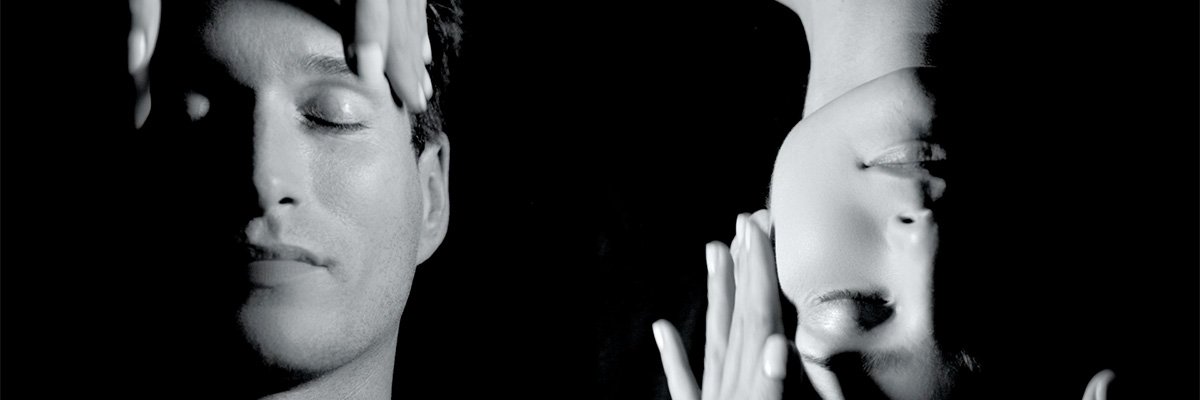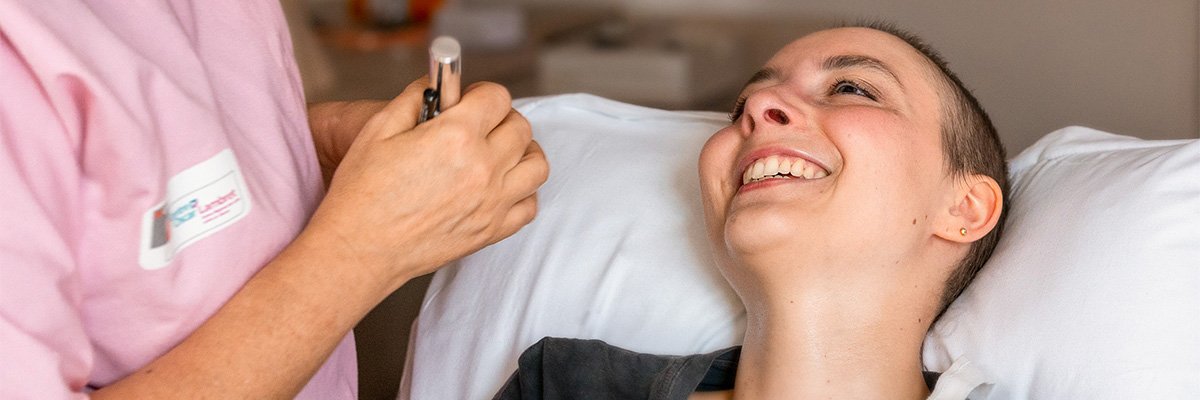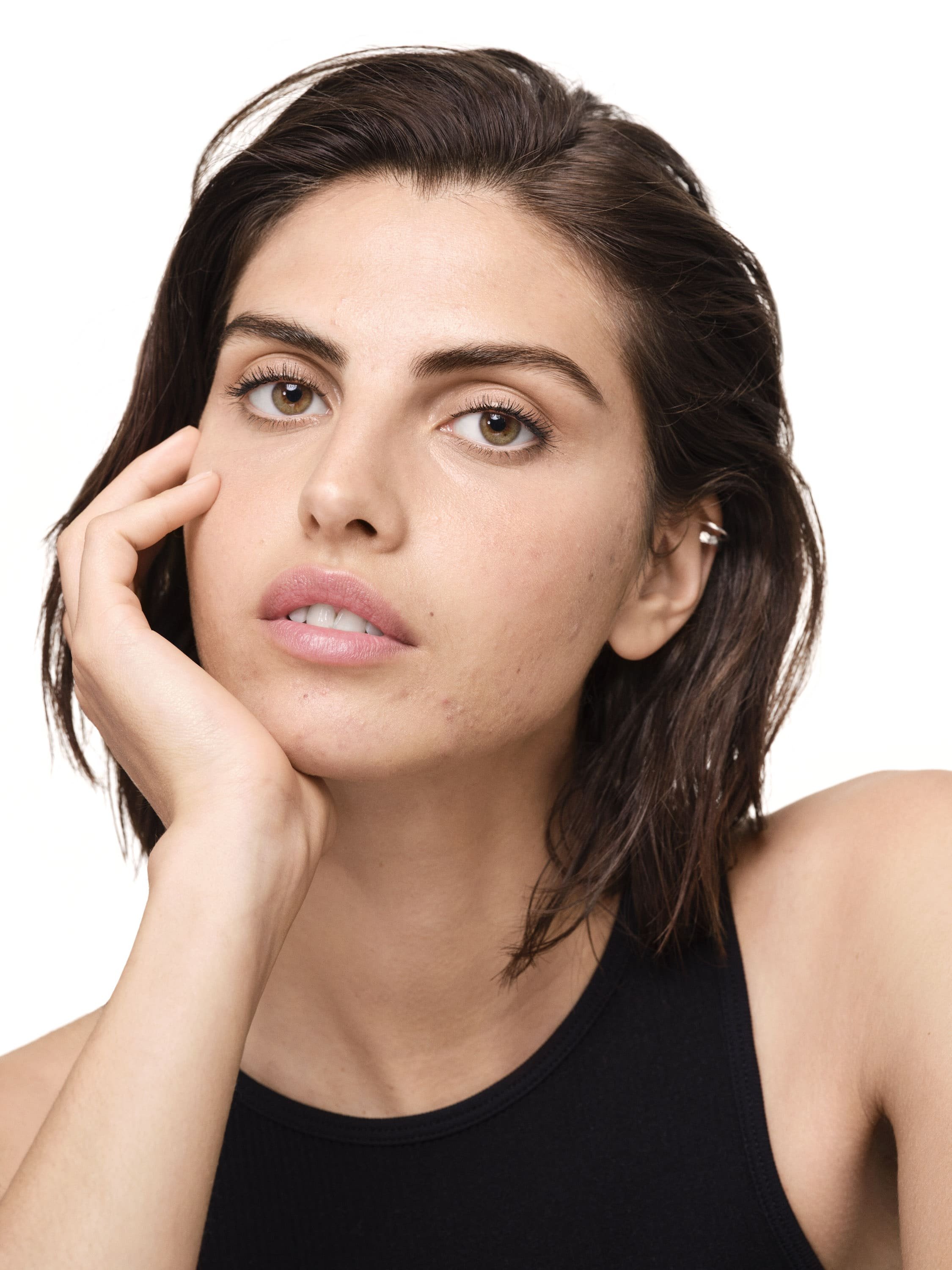Beauty is a wellness Story
A part of our daily life
Our contact with beauty starts with our first bath and ends with our last. Every important moment of our lives – birthdays, first shave, first makeup, marriage, celebrations – involves beauty rituals. Our day begins with beauty rituals, and it ends with them, allowing us to pause and connect with the self we see on the other side of the mirror. When we look at our reflection, we are looking at ourselves. Everyday gestures, like moisturizing our skin, brushing our hair, wearing perfume, putting on makeup, shaving or massaging our bodies, carry us into another world: the world of the senses.
The super-powers of beauty rituals
Everyday gestures, like moisturizing our skin, brushing our hair, wearing perfume, putting on makeup, shaving or massaging our bodies, carry us into another world: the world of the senses. In fact, this concept lies at the heart of the etymology of the word ‘aesthetics’, its original meaning referring to perception through the senses. From birth, this sensorial link helps us construct our identity. New-borns use their senses to explore their surroundings. They touch their mother’s skin to understand their identity and the world around them.

Defining identity
Throughout our lives, beauty plays a crucial role in defining our identity - providing personal expression, self-affirmation and creativity. It provides us with a path to personal expression, self-affirmation and creativity. It produces feelings of pleasure, desire and seduction.
According to Human8 for L'Oréal (2022), 88% of women and 80% of men say that they help them to feel more self-confident. And 85% of women and 78% of men say that skincare and beauty products help them to like themselves more. Studies by Harvard Medical School have demonstrated the positive effects of makeup on self-esteem and social perception of professional abilities.
Beauty is that “je ne sais quoi” that makes us feel good inside, boosting our confidence and self-esteem. During lockdown, the number of beauty tutorials and challenges exploded in social media. Beauty rituals soothe our mind and reduce anxiety, providing a refuge from crises. They help us to age more serenely, ease the pain of difficult times (e.g., grief and funerals), and make the passing of time easier to accept.

Suspending time
Scrolling, running, hurrying here and there, not a minute for ourselves… In our hyperconnected world, which craves our attention every second of the day, we feel we never have enough time. In today's frenetic world, are beauty rituals our best allies? Providing a refuge from this frenzy, beauty rituals provide a break that slows down the crazy pace of our lives. According to a 2022 study, 70% of women and 75% of men say skincare and beauty products help them to feel more relaxed (1). Beauty rituals help us suspend time, live in the moment and take a step back. This precious “me-time” gives rise to reflection, in every sense of the word, to take care of our health and our wellness.
(1) Human8 for L'Oréal, 2022.
Enhancing our lives
Beauty rituals help put a stop to obsessive thinking by reconnecting us to sensory pleasure. A liminal space between your private and professional lives, they help both private and public time. All year round, they enhance our lives: parties, weddings, birthdays, etc. A nostalgic smell takes us back in time. A massage anchors us in the present – and thanks to a unique selection of colors, personalized makeup can help us look positively towards the future.
A bubble of serenity
Massaging, cleansing and nourishing our skin… Morning and evening, these acts of self-love, repeated slowly in silence in a semi-meditative state cultivate mindfulness. Far from the unpredictable tumult of the world outside, we recreate a stability that renews us. Within this bubble of serenity, we give ourselves the ultimate luxury: time to ourselves. It gives us an opportunity to explore what is missing from our lives, think about the meaning behind our actions, soothe our senses and refocus on what really matters.

Intergenerational ties
Teaching young children to take care of themselves is a critical step in teaching them bodily awareness and socialization. Handed down from grandparents, to parents, to children, these rites of passage strengthen ties between generations.

In step with time
First job, first date, birthdays, weddings… As we go through life, every important moment involves beauty rituals – it helps us feel good about ourselves and helps mark the passage of time. They support us through every stage of life. They provide structure, build bridges between generations and keep us in step with time. They invite us to take stock of our bodies, the meaning of life and the ties that bind us to others. They give us back power over time by helping us to finally be present in the present moment.
96%
of women worldwide say that beauty products make them feel good or boost their self-esteem (2)
82%
of Europeans see haircare products as important, or very important, in their daily lives (3)
(2) L’Oréal study, “Health is the future of beauty”, 2016. (3) Cosmetics Europe.
Human Connection
Throughout our lives beauty rituals play a crucial role in our emotional well-being. For example, France is home to 100,000 hair salons - double the number of bakeries. Beauty rituals mark out life milestones: our first shave, first makeup, first perfume… On average, a hairstylist spends around 2,000 hours every year listening to their clients. We build a unique relationship with them, they are like our unofficial “therapists”, who know our deepest secrets and are by our side through the ups and downs of our lives.

Reconnecting to our senses
This time issue is crucial. In today’s more rational world, where we experience almost everything through a screen, we are perhaps losing a vital link to our senses. Using cosmetic products enables us to reconnect with our senses - bringing touch, texture and smells into our lives. They add a little color to our grey and sometimes mundane existence and anchor us in ourselves. Beauty rituals can act to soothe, invigorate and centre us. By looking in the mirror we can gain self-confidence, self-esteem, objectivity and discernment.

Becoming self-artists
By taking care of ourselves, we accept our uniqueness. According to a study ran back in 2016, 89% of women worldwide agree there are multiple ways to be beautiful. And 70% believe that beauty is an idea that each individual shapes for themselves (2). As a result, beauty opens us a vast space for creativity. As self-artists, we enhance and embellish our own lives with blush and brushes. The quest for beauty immerses us in a full, vibrant and harmonious relationship with the world. It has the power to bring magic to our lives.
Exploring our self-worth
In front of the mirror, this quest leads us to explore the notion of self-worth. When we strive to make ourselves more beautiful and to please ourselves, we present ourselves as people worthy of love. Self-esteem and confidence make us feel beautiful. In truth, the quest for beauty showcases our values - both ethical and esthetic: it communicates our personal value as well as our collective values.
" Look within yourself as in a mirror. In truth, the greatest gift you can give the world is your own transformation"
Lao-Tzu5th Century Chinese philosopher
Health: when beauty is a social balm
Taking care of ourselves and others... The pandemic held up an inescapable mirror to the fragility of our world and reminded us that care is crucial for our lives. Now more than ever, the quest for beauty recenters us on values that have always been the driving force behind humanity: protection and well-being. Beauty is part of the WHO’s definition of health, which is much more than the mere ‘absence of illness or infirmity.’ Health is a ‘state of complete physical, mental and social well-being.’

Skin diseases impact quality of life
Stress, the aging process, and climate change can weaken our skin barrier. Today, two billion people worldwide (a quarter of the global population) suffer from skin conditions (World Health Organization).
Eczema, acne, psoriasis, hypersensitivity, vitiligo, sunburn, cancers - the list goes on. There are almost 6,500 known skin diseases, whether viral, genetic, or environmental in origin. They can affect patients deeply and over the long term. For example, 98% of patients with skin diseases say that it affects their emotional health.
Stigmatization, anxiety, depression, and reduced access to jobs are just a few of the consequences. The WHO places them 4th on the ranking of pathologies that impact quality of life.

One out of 10 children suffers from eczema worldwide
This common, non-contagious skin condition results in patches of very dry, red, itchy and peeling skin. A La Roche-Posay study underscored the impact eczema has on quality of life. The survey of 5,000 eczema patients revealed:
- 50% experience intense skin pain as a result of the disease, with major psychological consequences.
- 79% say they don’t go to work because of their condition.
- 47 to 60% report that they don’t sleep enough. Insufficient sleep can lead to irritability and depressive symptoms.
Almost 60% of children with eczema say they have a hard time at school because the constant itching makes it difficult to concentrate in class. Children with eczema are three times more fearful than their peers.
Beauty and health are intertwined
Taking care of the body through hygiene, preventing disease and promoting feelings of well-being… Since the dawn of time, beauty and health have been intertwined. They share a common origin: protection and care. For example, the Dinka tribe, from South Sudan, uses ash to protect their skin from the sun and mosquito bites. In Namibia, the women of the semi-nomadic Himba tribe cover their hair and skin with a paste made of butterfat, ochre and sand, to protect the skin from the harsh desert climate.

Sun protection: a major public health issue
Dermo-cosmetics play a major role in combatting the skin disease epidemic. Alongside medical treatments, dermo-cosmetics can improve quality of life for those affected and can mitigate the side effects of anti-cancer treatments. And sunscreens protect the skin from deadly UV rays. Since the intensity of UV rays increases during heat waves, suncare is a major public health concern. UVA rays play a significant role in skin aging, impacting both texture and the appearance of wrinkles.
Indeed, 80% of the signs of skin aging (hyperpigmentation and wrinkles) are caused by sun exposure.
UV rays can also exacerbate certain forms of inflammation, like acne, cause photo-dermatosis, and can lead to the appearance of hyperpigmentation and skin cancers (carcinoma and melanoma). Sunscreens slow skin aging and the appearance of skin discoloration, whether during pregnancy, during acne breakouts or on scars.
Sunscreen reduce the risk of skin cancer
Skin melanoma is one of the most common types of cancer. According to the International Agency for Research on Cancer, the number of cases of melanoma is expected to more than double between 2020 and 2040. A study of the Queensland Institute of Medical Research, in Australia (2010), have shown that applying sunscreen daily could reduce by 73% the risk of developing skin cancer. More than 300,000 people are newly diagnosed with skin cancer every year - which sadly results in 57,000 deaths from a deadly disease that can be prevented with simple beauty products. These figures underscore the industry’s role in promoting health care and building public health resilience. For example, in the US, $250 million could be saved per year by preventing around 21,000 cases of melanoma by 2030 with higher awareness and the use of sunscreens. Raising awareness about our physical and mental vulnerabilities is a public health issue.
Protecting the skin
Since the intensity of UV rays increases during heat waves, suncare is a major public health concern. UVA rays play a significant role in skin aging, impacting both texture and the appearance of wrinkles. 80% of the signs of skin aging (hyperpigmentation and wrinkles) are caused by sun exposure. UV rays can also exacerbate certain forms of inflammation, like acne, cause photo-dermatosis, and can lead to the appearance of hyperpigmentation and skin cancers (carcinoma and melanoma). Sunscreens slow skin aging and the appearance of skin discoloration, whether during pregnancy, during acne breakouts or on scars.
Beauty's positive impact on cancer and wellbeing
Cancer patients are unanimous. In a study by Institut Odoxa (2018), 90% said that beauty treatments played an important role in improving their psychological and physical health, and boosting their self-confidence. They help those suffering serious illness reclaim their identity. And play an important role in helping them to bear the illness itself as well as the treatments and their side effects. 8 out of 10 patients said that beauty treatments made it easier to bear their cancer treatments and improved their self-esteem. 3/4 of beneficiaries said that beauty treatments helped them to face other people during their cancer treatment and reduced their anxiety.

2Bn
people worldwide suffer from skin conditions
75-95%
of teenagers experience acne worldwide

Treating the skin
At L’Oréal Groupe, the Dermatological Beauty Division is the world leader in dermo cosmetics, with international skincare brands recommended by health care professionals and distributed in healthcare outlets worldwide, including, pharmacies, drugstores, medi-spa and e-retailers. Our brand portfolio is composed of 5 brands originating from France and the USA - offering a range of skincare and haircare products, answering both pathological and aesthetic needs.
For example
- Products that treat light acne and dry skin and help to treat eczema by preventing flare-ups.
- Products that help wounds to heal and reduce the risk of skin discoloration.
- Products that help the skin age gracefully and decrease the appearance of wrinkles.
- Products that camouflage scars, spots and vitiligo, improving self-esteem and quality of life.
When skin conditions are severe, dermo-cosmetics can be used alongside medical treatments. They can also combat the side effects of medical treatments (dryness, redness, etc.), especially cancer treatments.
-73%
reduction in the risk of developing melanoma cancer by applying sunscreen
8/10
cancer patients said beauty treatments made it easier to bear their treatments and improve self-esteem
L’Oréal Groupe promotes health for all
L’Oréal’s objective is to provide dermatological solutions to further improve the treatment of skin problems, and to better respond to public health issues in dermatology.
To help manage skin conditions, L’Oréal Groupe has developed a relationship of trust with more than 250,000 doctors worldwide: dermatologists, pediatricians, esthetic doctors, general practitioners… This vast network of partners and this proximity allow us to design and test our products. La Roche-Posay, Vichy and CeraVe are the brands most often recommended by dermatologists across the globe thanks to their clinically proven effectiveness. Thanks to the expertise of its Research & Innovation teams, L’Oréal Groupe constantly innovates in the areas of sun protection, acne and other skin diseases. L’Oréal Groupe is also committed to destigmatizing anxiety and depression, and making mental health support accessible.

" The first good is health, the second is beauty. "
Plato4th Century BCE, Greek philosopher